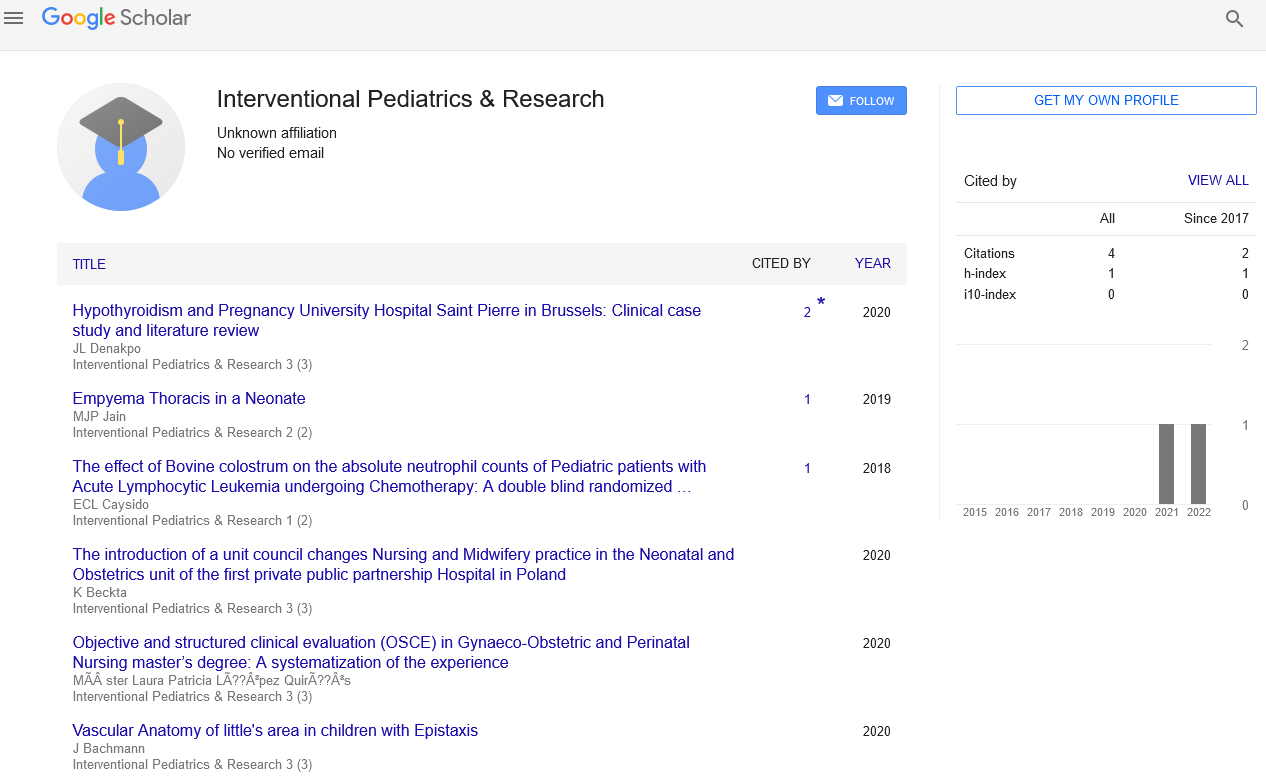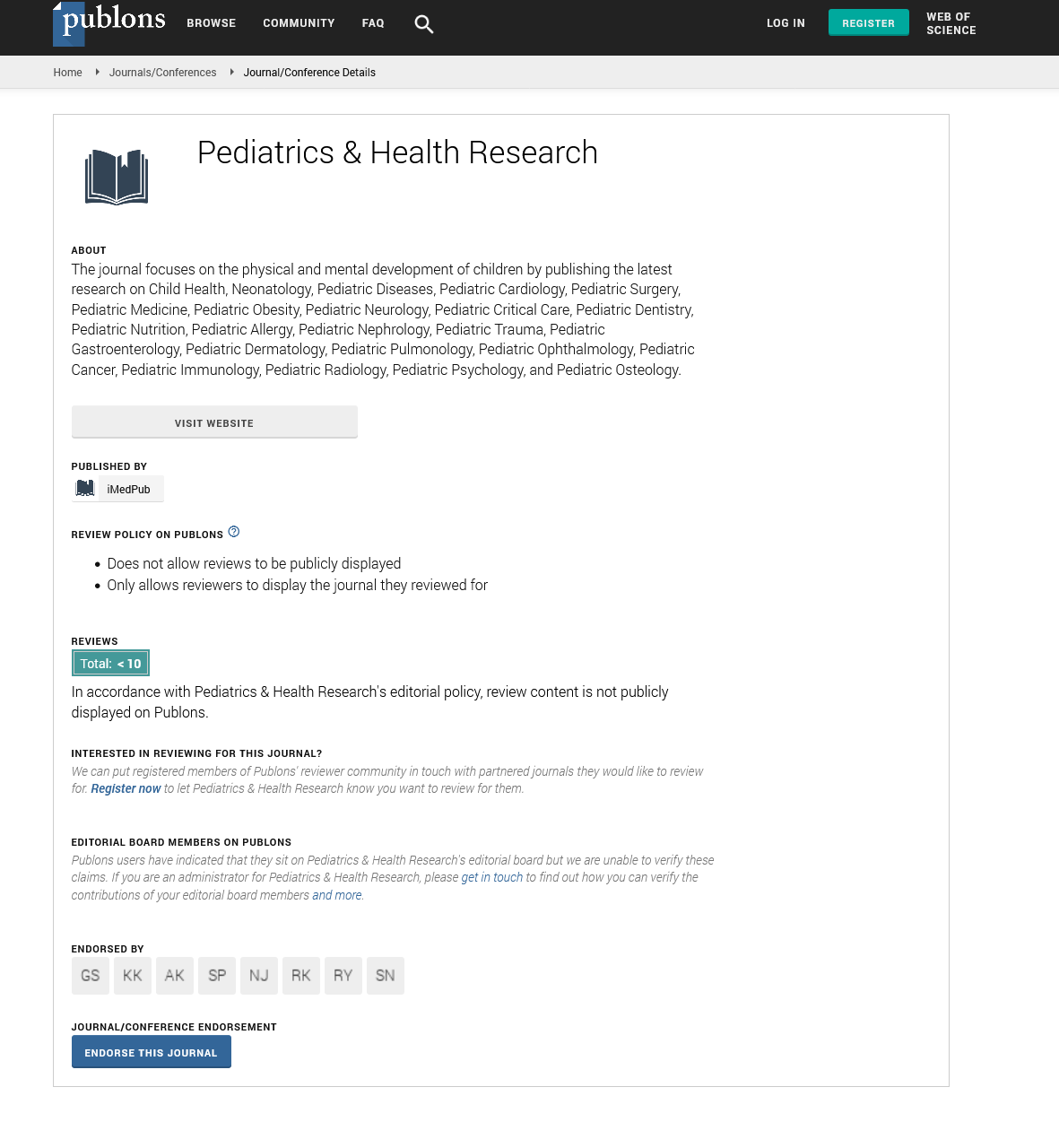Commentary - Interventional Pediatrics & Research (2021) Volume 4, Issue 1
An Overview on Pediatric Nutrition
- Corresponding Author:
- Nancy Browne Department of Pediatrics, Stanford University, USA E-mail: browne¬_n@stanford.edu
Abstract
The description of new-born children’s dietary needs is known as baby sustenance. A diet that is insufficient in essential calories, minerals, nutrients, or liquids is considered deficient. When compared to baby formula, breast milk provides the best nutrition throughout these critical first years of development. Breastfeeding, for example, helps to prevent weakness, stoutness, and sudden baby death; and it improves stomach-related well-being, resistance, insight, and dental outcomes.
The American Academy of Pediatrics recommends only giving a new-born infant breast milk, or an iron-fortified formula, for the first six months of life, and then continuing for one year or longer as desired by the baby and mother. New-born children are often not exposed to strong food sources until they are four to six years old. Breastfeeding was the preferred method of nutrition for most babies; otherwise, the baby would die. Breastfeeding is rarely contraindicated, although it is not advised for mothers undergoing cancer treatment, those with active tuberculosis, HIV, substance abuse, or leukaemia. Clinicians can be advised on how to determine what the optimal source of new-born child nutrition is for each child.
Legitimate baby nutrition necessitates the provision of basic nutrients that aid in normal development, working, advancement, and protection from infections and illnesses. Ideal nutrition can be achieved by the expectant mother deciding whether to breastfeed or bottle-feed the new-born infant before to birth and making plans for the chosen option.
The World Health Organization (WHO) and the Pan American Health Organization (PAHO) now recommend that babies be fed only breast milk for the first six months of their lives. It should be iron-improved if the youngster is being taken care of by the baby equation. A new-born kid who receives only breast milk for the first six months of life rarely requires additional nutrients or minerals. However, if the breastfeeding mother does not have adequate access to these nutrients, supplementation with vitamins D and B12 may be required. Indeed, the American Academy of Pediatrics recommends that all babies, whether breastfed or not, take a vitamin D supplement throughout the first few years of life to prevent vitamin D deficiency and rickets. Only breastfed new-born children will require iron supplementation beyond four months, since the iron in the bosom milk is insufficient at this time.
Because of lifestyle choices or the fact that women are unable to breastfeed, this sort of nutrition may be used instead of bosom milk. Recipe provides all of the essential nutrients for a child’s growth and development. Each child is different, and they may require different nutrition to help them grow and be happy. Infants may also have sensitivity, be late, or have a desire not to drink bosom milk. There are specific recipes for each type of child. If a child has a lactose aversion, they may prefer soy-based formula or lactose-free recipes. Some children may suffer from severe colic and require a recipe that is both sensitive and provides all of the nutrients required for growth and development.
Acknowledgement
None.
Conflict of Interest
The author declares there is no conflict of interest.


